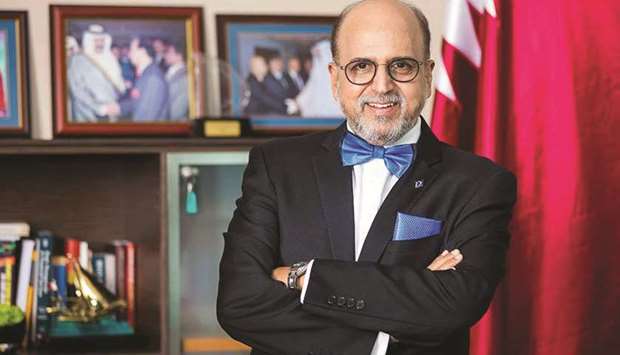Qatar has remained resilient amid the Gulf crisis, according to the chief executive officer of Doha Bank, who described the country’s financial system as “stable and functional.”
“These are changing and challenging times. Qatar has proved to be resilient,” Doha Bank CEO Dr R Seetharaman said in a statement.
He said Qatar’s total reserves stood at “$340bn, including assets of its sovereign wealth fund, Qatar Central Bank (QCB) reserves, cash, and gold.”
“Essentially the 30% reserves in June were only QCB reserves to improve local market liquidity. Qatar’s reserves are more than twice of its GDP. In terms of financial stability, Qatar is strong, stable and functional,” Seetharaman pointed out.
Seetharaman also lauded government’s quick intervention after siege countries blocked land, sea, and air links to Qatar.
“The challenges remain in terms of alternate supplies via airport or seaport. Qatar has made alternate arrangements for supplies and hence sorted out. Essentially the plan A to plan B is a conversion, which is what Qatar is engaged in.
“The operational reserves have proved to be a right model and are working well. There is food price inflation otherwise, the rest is under control. Qatar’s recurring revenues in terms of oil, gas, and petrochemicals is in the making,” Seetharaman said.
He also stressed that the international community “is recognising in terms of political, social, and economic progression that Qatar is a resilient and model economy.”
“Supply chain disruption in terms of land transport has caused some disturbance in Qatar. But there is always plan B. Imports have been redefined from Turkey, Malaysia, India, and the UK so, essentially, reordering the levels is one thing they have to consider and also realign the overall policy framework, which is in consensus with rest of the world,” he said.
Seetharaman said while the crisis “is lingering, America is playing its part” even as he lauded Kuwait for “doing a substantive role” as a mediator.
“The GCC is known for its co-operation and co-ordination in the last 40 years, and the UN has to step in to see how best they can resolve the issue in a peaceful manner. It is required and it is time. It is a defining time to make sure that Qatar’s role is being recognised. It has to be resolved by international mediations, which is underway and the stepping in by the UN will have long-term, positive consequences,” he said.
Seetharaman added: “I hope the GCC does not end. The GCC customs union has worked well and currency union has been set as a good convergence criteria though it is not implemented. The macroeconomic similarity within GCC has been well-established producing 45% of oil and 25% of gas comes in.”

Seetharaman: Positive outlook.
